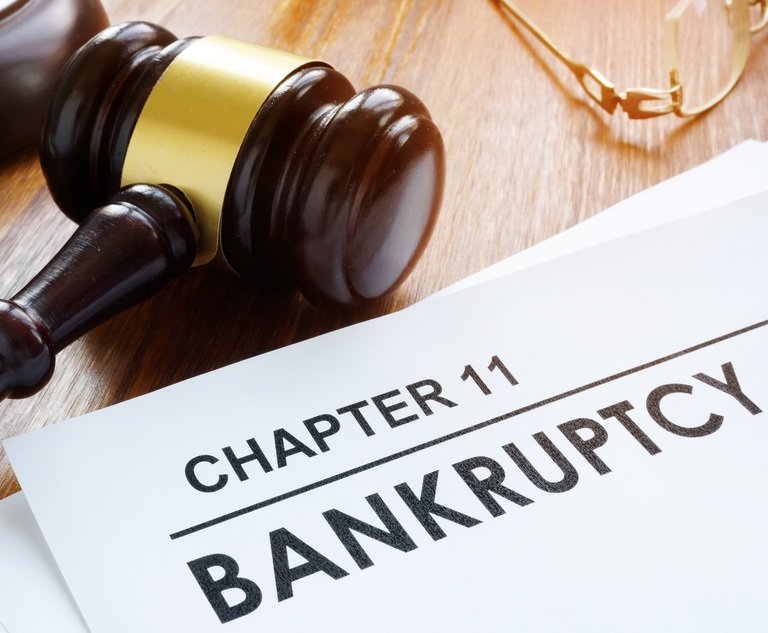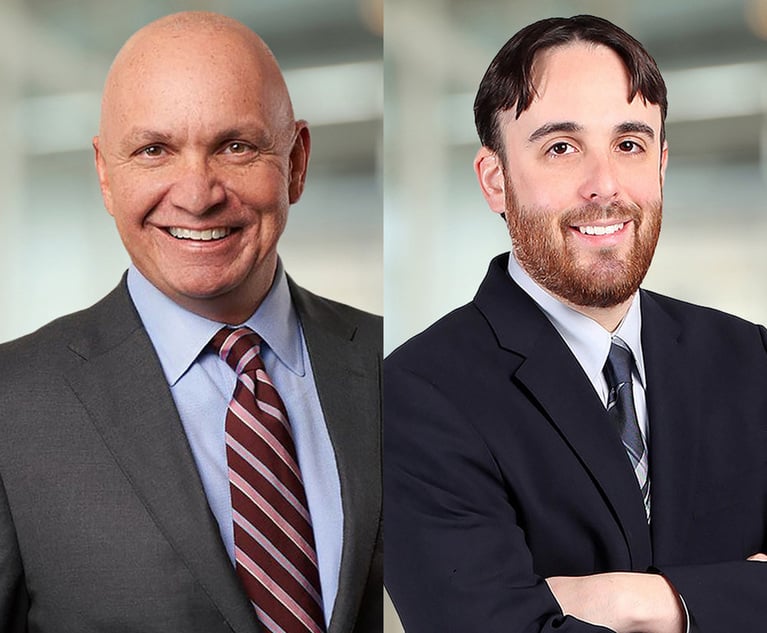 Credit: Vitalii Vodolazskyi/Shutterstock.com
Credit: Vitalii Vodolazskyi/Shutterstock.com What Happens When a Redevelopment Project Goes Into Default or Bankruptcy?
One of the most significant considerations for a redevelopment project facing financial distress will be the impact of the prohibition against transfers found in the Local Redevelopment and Housing Law, which requires all redevelopment agreements to include a "provision that the redeveloper shall be without power to sell, lease or otherwise transfer the redevelopment area or project, or any part thereof, without the written consent of the municipality or redevelopment entity."
July 11, 2023 at 10:00 AM
9 minute read
The challenges that have compelled municipalities to act to arrest and reverse negative conditions and encourage investment in redevelopment areas will increase as redevelopment projects face inflationary pressures and rising interest rates. Redevelopers may find their lenders enforcing protections embedded in loan documents, such as enhanced capital reserve requirements and loan covenants, performance guaranties and the like. If economic pressures become intense and defaults are a possibility, redevelopers and their lenders—redevelopment entities, taxing authorities and trade creditors—will be driven to consider the unique issues presented when there is a default on a redevelopment project, including consideration of a bankruptcy filing to stave-off creditor lawsuits or real estate foreclosure, or to permit a recapitalization of a distressed redevelopment project in order to deliver the project to completion.
Unique Features of the Redevelopment Statute and Redevelopment Agreements
One of the most significant considerations for a redevelopment project facing financial distress will be the impact of the prohibition against transfers found in the Local Redevelopment and Housing Law (LRHL), N.J.S.A. 40A:12A-9, which requires all redevelopment agreements to include a "provision that the redeveloper shall be without power to sell, lease or otherwise transfer the redevelopment area or project, or any part thereof, without the written consent of the municipality or redevelopment entity." A municipality may exercise the powers granted to it under the LRHL to implement a redevelopment plan itself, or it is also authorized to transfer the implementation powers to a redevelopment entity such as a redevelopment agency, a housing authority acting as a redevelopment entity, or a county improvement authority, N.J.S.A. 40A:12A-4. In this article any reference to "redevelopment entity" should be read to include the municipality itself exercising these powers or one of the referenced entities that the municipality can select.
This content has been archived. It is available through our partners, LexisNexis® and Bloomberg Law.
To view this content, please continue to their sites.
Not a Lexis Subscriber?
Subscribe Now
Not a Bloomberg Law Subscriber?
Subscribe Now
NOT FOR REPRINT
© 2025 ALM Global, LLC, All Rights Reserved. Request academic re-use from www.copyright.com. All other uses, submit a request to [email protected]. For more information visit Asset & Logo Licensing.
You Might Like
View All
Topping Kirkland, Weil Won the Most Valuable Major Bankruptcy Retentions of 2024

How New Jersey’s Pragmatic Bankruptcy Approach Sets It Apart Post-'Purdue Pharma'
7 minute read
Law Firms Mentioned
Trending Stories
Who Got The Work
J. Brugh Lower of Gibbons has entered an appearance for industrial equipment supplier Devco Corporation in a pending trademark infringement lawsuit. The suit, accusing the defendant of selling knock-off Graco products, was filed Dec. 18 in New Jersey District Court by Rivkin Radler on behalf of Graco Inc. and Graco Minnesota. The case, assigned to U.S. District Judge Zahid N. Quraishi, is 3:24-cv-11294, Graco Inc. et al v. Devco Corporation.
Who Got The Work
Rebecca Maller-Stein and Kent A. Yalowitz of Arnold & Porter Kaye Scholer have entered their appearances for Hanaco Venture Capital and its executives, Lior Prosor and David Frankel, in a pending securities lawsuit. The action, filed on Dec. 24 in New York Southern District Court by Zell, Aron & Co. on behalf of Goldeneye Advisors, accuses the defendants of negligently and fraudulently managing the plaintiff's $1 million investment. The case, assigned to U.S. District Judge Vernon S. Broderick, is 1:24-cv-09918, Goldeneye Advisors, LLC v. Hanaco Venture Capital, Ltd. et al.
Who Got The Work
Attorneys from A&O Shearman has stepped in as defense counsel for Toronto-Dominion Bank and other defendants in a pending securities class action. The suit, filed Dec. 11 in New York Southern District Court by Bleichmar Fonti & Auld, accuses the defendants of concealing the bank's 'pervasive' deficiencies in regards to its compliance with the Bank Secrecy Act and the quality of its anti-money laundering controls. The case, assigned to U.S. District Judge Arun Subramanian, is 1:24-cv-09445, Gonzalez v. The Toronto-Dominion Bank et al.
Who Got The Work
Crown Castle International, a Pennsylvania company providing shared communications infrastructure, has turned to Luke D. Wolf of Gordon Rees Scully Mansukhani to fend off a pending breach-of-contract lawsuit. The court action, filed Nov. 25 in Michigan Eastern District Court by Hooper Hathaway PC on behalf of The Town Residences LLC, accuses Crown Castle of failing to transfer approximately $30,000 in utility payments from T-Mobile in breach of a roof-top lease and assignment agreement. The case, assigned to U.S. District Judge Susan K. Declercq, is 2:24-cv-13131, The Town Residences LLC v. T-Mobile US, Inc. et al.
Who Got The Work
Wilfred P. Coronato and Daniel M. Schwartz of McCarter & English have stepped in as defense counsel to Electrolux Home Products Inc. in a pending product liability lawsuit. The court action, filed Nov. 26 in New York Eastern District Court by Poulos Lopiccolo PC and Nagel Rice LLP on behalf of David Stern, alleges that the defendant's refrigerators’ drawers and shelving repeatedly break and fall apart within months after purchase. The case, assigned to U.S. District Judge Joan M. Azrack, is 2:24-cv-08204, Stern v. Electrolux Home Products, Inc.
Featured Firms
Law Offices of Gary Martin Hays & Associates, P.C.
(470) 294-1674
Law Offices of Mark E. Salomone
(857) 444-6468
Smith & Hassler
(713) 739-1250







